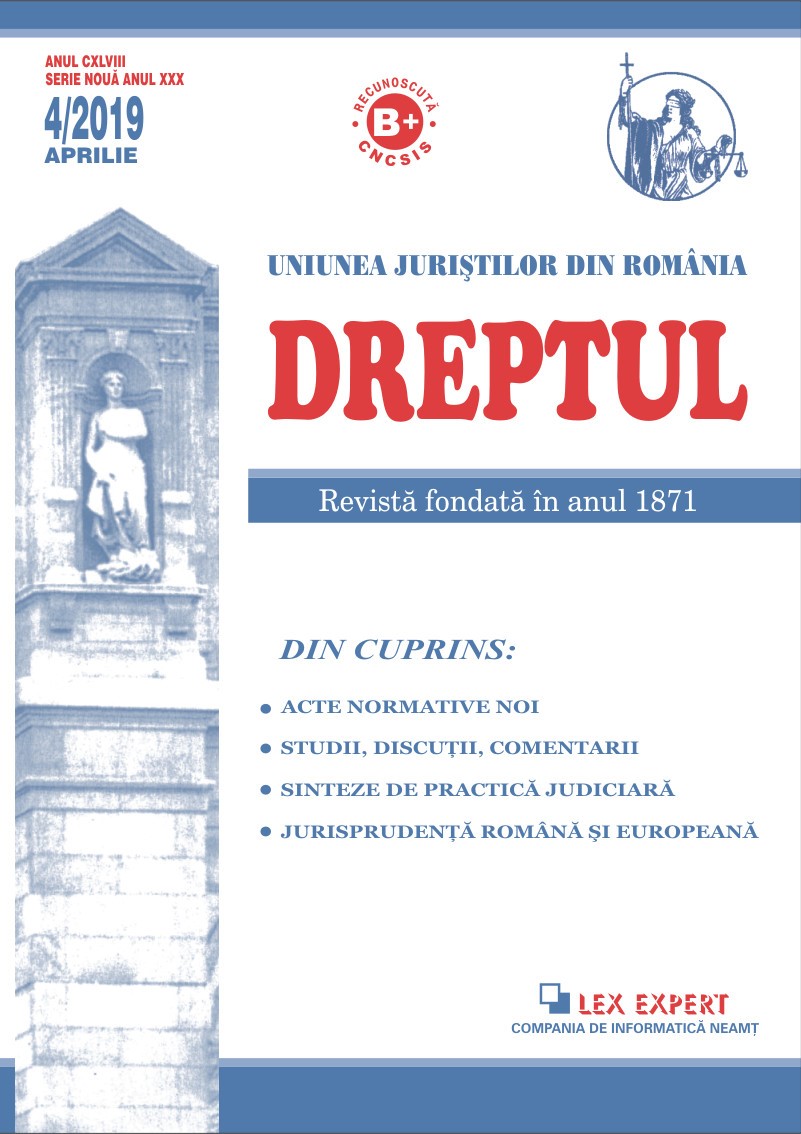Maurice Hauriou (1856–1929), părintele fondator al dreptului administrativ francez
Maurice Hauriou (1856–1929), the founding father of the French administrative law
Author(s): Cristian ClipaSubject(s): History of Law
Published by: Uniunea Juriștilor din România
Keywords: public power; public administration; public service; administrative regime; administrative function; public domain; civil service; self-executing decision; administrative contract;administrative jurisdiction;
Summary/Abstract: With Marice Hauriou, in France, public law goes into the modern age. By his style, by the number and complexity of the themes he approached as well as by their exhaustiveness, this founding father of French administrative law – as we know it today – leaves behind a legal literature that, up to him, has only been able to provide sterile and purely descriptive commentaries of normative acts, modest works belonging to those that the modern history of public law labelled as of glossary or repertory writers. Hauriou is the one who, for the first time in the history of French administrative law, confers it the terminological and ideological substance for which it is highly appreciated by public law specialists today.Among the major themes that Professor Hauriou has approached in his work, the following are still outstanding, due to the accuracy and relevance of the analyses surrounding them, such as: – the administrative regime and the administrative function; – the institution and the institutional phenomenon; – the legal persons of public law, the public establishments and the establishments of public utility; – the public administration; – the public interest and the administrative management; – the public service; – the civil service and the civil servant; – the public property and the public domain; – the self-executing decisions or the unilateral administrative act; the administrative contract; – the administrative litigations; – the acts of government; – the discretionary power of the public administration; – the patrimonial liability for the public administration’s illicit acts; – the administrative police. Most of these themes have been systematically addressed by Hauriou, either by reference to the ideological foundation represented by the „public power”, or in relation to the notion of corporate institution, or in connection with the fact that administrative law groups rules with a derogatory nature from the rules of civil law, and legal persons under public law called upon to carry out the administrative function of the State are endowed with exorbitant prerogatives, the exercice of their duties being likely to result in a restriction of the freedom or the property of individuals. Surely, this risk – far from being totally eliminated – can be diminished, but only when individuals have effective tools to fight against abuses by executive authorities. According to Hauriou, an important place among these instruments is occupied by the so-called judicial review on abuse of power, a type of judicial action aiming at the annulment of unlawful administrative acts.
Journal: Revista „Dreptul”
- Issue Year: 2019
- Issue No: 04
- Page Range: 147-209
- Page Count: 63
- Language: Romanian
- Content File-PDF

